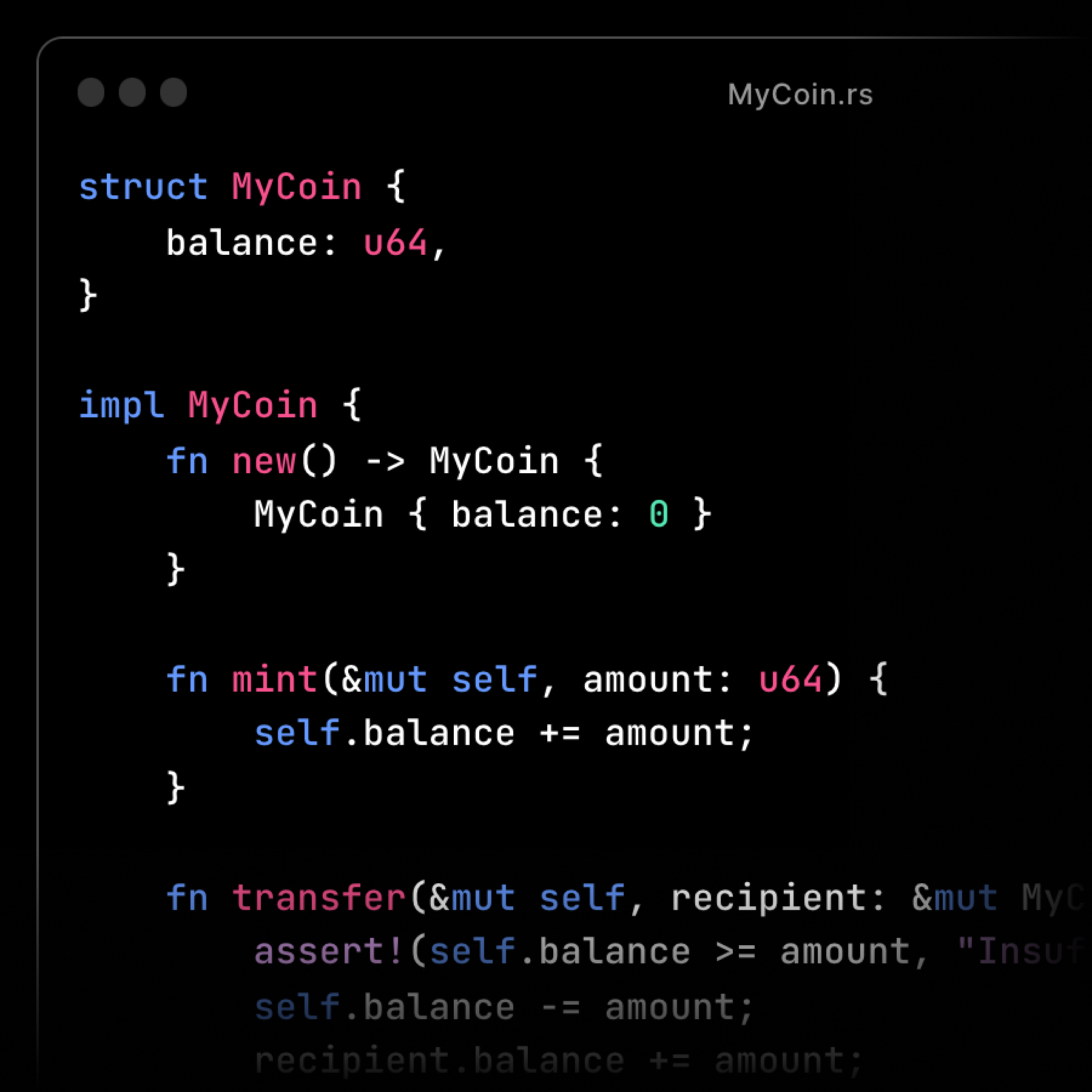
Rust is a statically-compiled language with a comprehensive type system and ownership model that is extremely fast and memory economical. Rust is often used for system programming, but thanks to its high-level capabilities, it doubles as a functional programming language. The syntax of Rust is comparable to that of C and C++, although many of its features are influenced more by functional programming languages.
Rust’s goal is to allow concurrent systems development, which has inspired a feature set that prioritizes safety, memory layout management, and concurrency. Memory safety, type safety, and the absence of data races are all guaranteed in Rust. Our developers employ this statically typed, high-level, general-purpose, multi-paradigm programming language's safety, speed, concurrency, and efficiency to create best-in-class decentralized programs for a wide range of commercial use cases.
BENEFITS
Benefits of Rust Language
Active developer community
Rust was built by Mozilla, the non-profit organization that produced Firefox. Mozilla's developers investigated the issues with their code and sought a better solution. Finally, they settled on Rust. Rust is presently used by companies like Microsoft, Meta, Dropbox, Arm, Google, Amazon, and others.
The best alternative to C++
Rust is a contemporary alternative to C++, addressing issues like null usage. It offers comparable compiling speeds, continually enhanced through LLVM advancements. Unlike C++, Rust eliminates the need for recompilation after code changes. Additionally, it includes Cargo, a built-in package manager that verifies dependencies and prevents unnecessary recompilation. These features make Rust efficient and developer-friendly.
Superior memory management
With Rust, you have complete control over memory allocation and deallocation. When you create a variable, a smart pointer is created to help with memory management. De-allocation occurs if the smart pointer exits the scope. This method provides our developers with total control and enables them to utilize many smart pointers that share the same data.
PROCESS
Steps to Hire our Rust Developers
Experience a hassle-free hiring process as we walk you through the essential steps of selecting and hiring our top-notch Rust developers.

Inquiry
Tell us about your project needs and goals. We keep your information confidential.
Select Candidates
We provide a list of pre-verified candidates based on your requirements.
Take Interviews
Interact with the candidates through a phone/video call.
Onboarding the Developer
Add the selected developer to your team and orient them according to your project.

WHY US
Why choose us for Rust Development Services?
We have the knowledge and skills to create the greatest Rust-based blockchains, dApps, and other unique Web 3.0 solutions, such as metaverse platforms, to help you take your business to the next level. We can leverage Rust for the following engineering perks:
Build cross-platform applications
The Codezeros team knows how to leverage Rust for its cross-platform compatibility. We know how to compile Rust codebases for execution on a diverse range of platforms, including desktop, mobile, and embedded systems.
Implement low-level programming
Rust is a low-level programming language that grants our developers direct access to hardware and memory. Our software engineers see Rust’s potential as a great solution, not just for blockchain, but operating systems and microcontroller applications.
Secure Web 3.0 solutions
Our blockchain experts are able to leverage Rust’s memory safety to design safe and stable Web 3.0 solutions for your business. Rust allows us to implement SQL injections, cross-site scripting, etc.
Skilled in Substrate
Our Rust developers are skilled in Substrate, a framework developed by Parity, a blockchain infrastructure provider, explicitly for building custom blockchain systems with rich features and functionalities.

The most common questions
Do you have any queries? Allows us to dispel any doubts you may have before you hire our Rust software development services.
